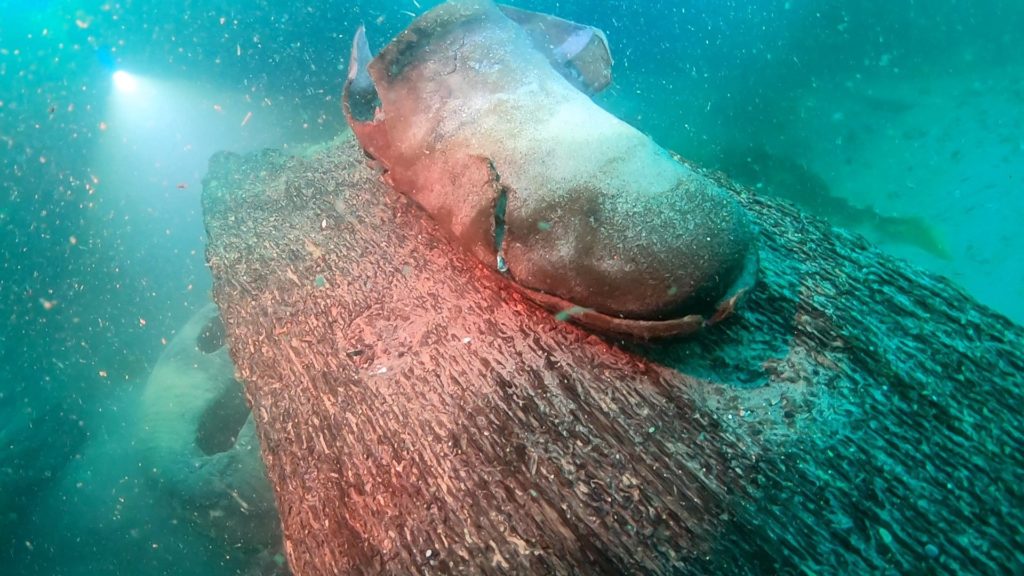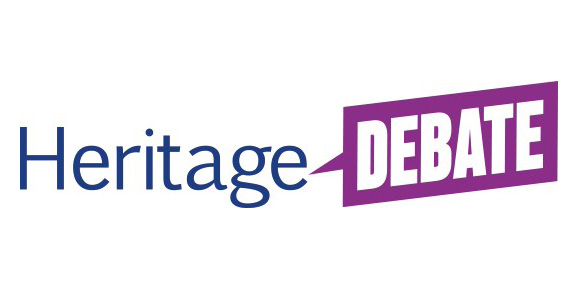Blog from Maritime Archaeology Sea Trust (MAST) on the future of heritage.
Shared in the lead-up to The Heritage Alliance’s Heritage Debate 2022: Heritage in 20 years.

Heritage in 20 Years: what will matter most?
What matters most in the next 20 years for marine archaeology. Over the next 20 years Underwater Cultural Heritage (UCH), its protection and management will face serious emerging threats that the sector is ill equipped to deal with.
Principally these are:
- Offshore development as energy generation, mineral extraction and agriculture (mariculture) move offshore.
- Coupled with further advances in remote sensing, this will lead to more and more previously unknown UCH being discovered.
- Discovery in itself will continue to constitute a threat, since location inevitably enters the public domain (e.g. Galloper wreck). Avoiding disturbance by a seabed developer is not adequate management of risk to newly discovered UCH.
- Climate change. Warming seas lead to enhanced biological degradation of UCH, especially from invasive species moving their habitat northwards and more extreme storm events, which result in greater seabed movement. This, in turn, exposes more UCH to biological degradation as well as mechanical damage.
How well equipped is the marine archaeology sector to meet these emerging threats over the next 2 years? Not very well at all:
- The sector / discipline of marine archaeology is woefully underfunded compared to its terrestrial counterpart, which itself is hardly adequately funded. Moreover, marine archaeology fieldwork have considerably greater fieldwork costs.
- These enhanced fieldwork costs may be resulting in marine archaeology being afforded a lower priority by heritage managers.
- There is no sustained capacity building within the sector, leading to ‘boom & bust’ capacity provision as specific projects and with them funding of capacities come and go e.g. Marine Antiquities Scheme, CitiZen etc.
- The result is that There is little infrastructure in the UK to conduct the kind of work that HMG policy requires.
- There is very little Higher Education facility within the discipline.
- lack of cross departmental strategic policy cohesion across government, with fractured responsibilities and lack of an effective ‘lead’ department e.g. Crown Estate grant funding & Defra administration (exclusion of UCH), divided responsibility for military and civil UCH.
- There is a failure to embed UCH projection within mainstream environmental law and policy, though this is slowly being addressed, e.g Marine Licensing and Fisheries Act 2020.
- lack of enforcement capability by virtue of a failure to utilise and co-ordinate marine public assets.
- There is a failure of the sector to effectively engage with political representatives, which is what is required to reverse the above e.g. Spending Review 2021.
How can this be addressed?
- Continue momentum of bringing UCH and the discipline of marine archaeology into mainstream environmental law and policy.
- Increase the cultural value and priority afforded to UCH and the discipline of marine archaeology by effective engagement with political representatives.
- Secure cross departmental strategic policy co-ordination.
- Exploit technology to enhance public access to UCH, including in situ archaeology e.g virtual ‘diver trails’, virtual reality
- Exploit technology to enhance protection of UCH through satellite technologies combined with Artificial Intelligence (AI), Human Intelligence (HUMINT) and Open Source Intelligence (OSINT).
- Enhance protection of UCH through co-ordinated utilisation of marine public assets e.g. use of Common Enforcement protocols.
- Seek a revised approach towards seabed developers’ responsibility to UCH.
- Build sustained capacity through a co-ordinated approach to sector funding by Government departments and public agencies.
- Continue a shared heritage’ approach, where available, with other countries, both in terms of individual projects and through development of regional Treaties, which is envisaged by the UNESCO Convention on the Protection of Underwater Cultural Heritage 2001.
– Jessica Berry (CEO, MAST), Professor Mike Williams of Plymouth University (MAST Heritage Director) and Prof Dave Parham of Bournemouth university (MAST advisor).


Explore other perspectives on ‘Heritage in 20 Years: what will matter most’ over on our event page for Heritage Debate 2022.

